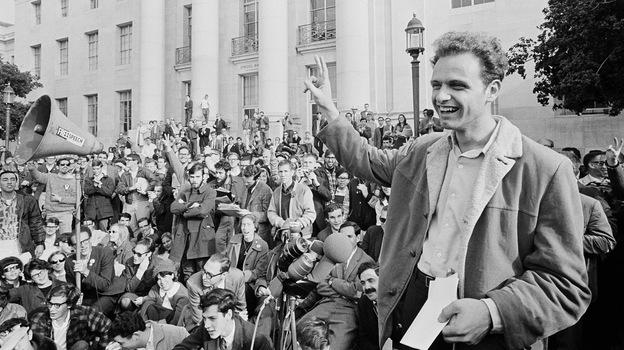A student protest fueled by civil rights took place Dec. 2, 1964 on the UC Berkeley campus called the Free Speech Movement.
One thousand students took over an administration building and held a sit in that resulted in hundreds of arrests.
Last week was the 50th anniversary of the Free Speech Movement. Sonoma State University’s very own late Mario Savio, a philosophy, physics and mathematics professor, was remembered as one of the main spokesman with the Free Speech Movement during the UC Berkeley protests.
He was a 21-year-old philosophy major at the time of the protests and had just returned from registering black voters in Mississippi.
During the protests he made a moving speech where he said, “There comes a time when the operation of the machine becomes so odious, makes you so sick at heart, that you can’t take part, you can’t even passively take part; and you’ve got to put your bodies upon the gears and upon the wheels upon all the apparatus, and you’ve go to make it stop. And you’ve got to indicate to the people who run it, the people who own it, that unless you’re free the machine will be prevented from working at all.”
He served four months in Santa Rita jail in Alameda for his part in the Free Speech Movement. Savio fought for civil rights and social justice even when he became a professor at SSU. He actively tried to create an inclusive society called the Campus Coalition for Human Rights and Social Justice. One of the last things he did before he died in 1996 was prepare a lawsuit to challenge a process of imposing fee increases on working class and minority Sonoma State students.
Savio was passionate about his work until his last breath at the age of 53. Merriam Webster’s dictionary defines freedom of speech as, “the right to express facts and opinions subject only to reasonable limitations (as the power of the government to protect itself from a clear and present danger) guaranteed by the first and 14th amendments to the U.S. Constitution and similar provisions of some state constitutions.”
Sonoma State students have a their own ideas on what free speech means to them..
“What free speech means to me is the ability to express your thoughts and opinions without the fear of tyranny from the government,” said senior Gabrielle DiMariano.
While many have unique definitions of what free speech is, others take the time to appreciate the rights they have and reflect on what it means to them.
“Free speech to me means I have the right to voice my opinion and how I feel without punishment while being in a appropriate environment,” said freshman Kelly McReynolds.





![[Both photos courtesy of sonoma.edu]
Ming-Ting Mike Lee stepped in as the new SSU president following Sakakis resignation in July 2022](https://sonomastatestar.com/wp-content/uploads/2024/04/CC4520AB-22A7-41B2-9F6F-2A2D5F76A28C-1200x1200.jpeg)



























